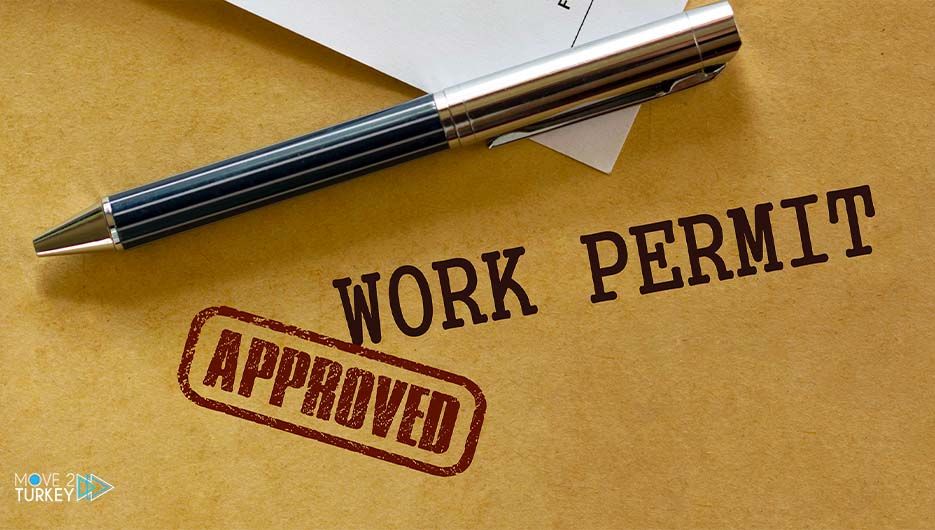A Work Permit is a mandatory legal document that allows foreigners to work legally in Vietnam. It specifies the personal information of the foreign worker, the name and address of the employing organization, and the specific job position. Foreign workers must strictly adhere to the job role outlined in the work permit, or they risk violating the law. This article provides a detailed guide on the process and procedures for obtaining a work permit, ensuring compliance with current legal regulations, particularly Decree No. 152/2020/ND-CP, to assist businesses and foreign workers in completing the process efficiently and transparently.
Mục lục bài viết
1. What is a Work Permit?
A work permit is a prerequisite for foreigners to work legally in Vietnam, similar to how a visa or temporary residence card is required for legal residency. Foreign workers without a work permit or an exemption certificate are not allowed to work, except in cases exempted by law.
2. Eligible Applicants for a Work Permit
According to Decree No. 152/2020/ND-CP, foreign workers may apply for a work permit if they fall under one of the following categories:
- Performing labor contracts.
- Transferred within an enterprise (intra-company transfer).
- Executing contracts or agreements in fields such as economics, commerce, finance, banking, insurance, science and technology, culture, sports, education, vocational training, or healthcare.
- Providing services under a contract.
- Offering services for sale.
- Working for non-governmental organizations or international organizations permitted to operate in Vietnam.
- Managers, executive directors, experts, or technical workers.
- Participating in the implementation of bids or projects in Vietnam.
Eligible employers who can sponsor a work permit include:
- Enterprises operating under the Law on Enterprises, the Law on Investment, or international treaties to which Vietnam is a party.
- Contractors participating in bidding or executing contracts.
- Representative offices or branches of enterprises or organizations licensed to operate.
- State agencies, political organizations, socio-political organizations, social organizations, or socio-professional organizations.
- Foreign non-governmental organizations registered under Vietnamese law.
- Public service organizations or educational institutions legally established.
- International organizations, foreign project offices, or organizations authorized by the Government, Prime Minister, or ministries to operate.
- Operating offices of foreign investors in business cooperation contracts or foreign contractors.
- Law firms operating in Vietnam.
- Cooperatives or cooperative unions under the Law on Cooperatives.
- Business households or individuals permitted to conduct business activities under the law.
3. Process and Procedures for Obtaining a Work Permit
Step 1: Register the Demand for Foreign Labor Recruitment
Employers (except contractors) must submit an application explaining the need to employ foreign workers at least 30 days before the intended employment start date. The application is submitted to the Ministry of Labor, Invalids, and Social Affairs or the People’s Committee of the province where the enterprise is headquartered.
Required documents:
- Explanation letter for the demand to employ foreign workers:
- Form No. 01/PLI (Decree 152/2020/ND-CP) for first-time registration.
- Form No. 02/PLI for enterprises with previously approved demands but requesting changes.
- Authorization letter or introduction letter (if the submitter is not the legal representative).
- Notarized copy of the Business Registration Certificate or equivalent operating license.
Processing time: 15 working days from receipt of complete documents.

Step 2: Prepare the Work Permit Application
While awaiting approval from Step 1, foreign workers must prepare the following documents:
- Application form for a work permit (Form No. 11/PLI, Decree 152/2020/ND-CP).
- Health certificate:
- Issued within the last 12 months by a qualified medical facility as per the Ministry of Health’s regulations (in Vietnam or abroad).
- Criminal record certificate:
- Issued abroad (valid within 6 months) confirming the worker is not serving a sentence, has no unexpunged criminal record, or is not under criminal prosecution.
- If residing in Vietnam, a criminal record certificate can be obtained from the Department of Justice in the place of temporary residence.
- Document verifying the job position/work experience relevant to the intended role in Vietnam.
- Notarized copy of a valid passport and visa (or temporary residence card).
- Two 4×6 cm color photos, white background, no glasses, taken within 6 months.
Additional documents depending on the job position:
- Experts:
- University degree or equivalent.
- Confirmation of at least 3 years of experience in the relevant field matching the intended job in Vietnam.
- Managers or Executive Directors:
- Document confirming the role as a manager or executive director.
- For intra-company transfers: Appointment decision and confirmation of at least 12 months of continuous work experience at the parent company.
- Technical Workers:
- Confirmation of at least 1 year of technical training and 3 years of relevant experience, or 5 years of experience matching the intended job.
Notes:
- Foreign documents (degrees, experience confirmations) must be consular-legalized and translated into Vietnamese with notarized certification.
- For intra-company transfers, additional documents include:
- Appointment decision.
- Investment certificate, business registration, or operating license of the enterprise.
Step 3: Submit the Work Permit Application
- Submission time: At least 40 working days before the foreign worker’s intended start date.
- Submission location: Department of Labor, Invalids, and Social Affairs in the locality where the worker will work.
- Required documents: All documents prepared in Step 2 and the approval of the foreign labor demand from Step 1.
Step 4: Receive the Result
- Processing time: 5 working days from receipt of complete and valid documents.
- Outcome:
- If approved, the Department of Labor, Invalids, and Social Affairs will issue the work permit as per the prescribed form.
- If rejected, a written explanation will be provided.
4. Work Permit Validity Period
According to Article 10 of Decree 152/2020/ND-CP, the maximum validity of a work permit is 2 years, determined based on:
- The duration of the intended labor contract.
- The duration of the foreign worker’s assignment to Vietnam by the foreign entity.
- The duration of contracts/agreements between Vietnamese and foreign partners.
- The duration of service provision or service negotiations.
- The validity of the operating license of non-governmental or international organizations.
- The duration specified in documents assigning the foreign worker to establish a commercial presence or participate in the activities of a foreign enterprise in Vietnam.
5. Important Notes
- Work Permit Exemption: Certain cases are exempt from work permits (e.g., short-term experts, volunteers). However, an exemption certificate must be obtained from the competent authority.
- Legalization of Documents: Foreign documents must be consular-legalized and translated into Vietnamese with notarized certification to be legally valid in Vietnam.
- Compliance with Deadlines: Late submission of documents may result in delays or rejection.
- Professional Consultation: Employers and foreign workers are advised to seek advice from legal experts or consultancy firms to ensure complete, accurate documentation and a smooth process.
The process of obtaining a work permit for foreigners in Vietnam requires meticulous preparation and strict compliance with legal regulations. Adhering to the correct procedure not only ensures that foreign workers can work legally but also helps employers avoid legal risks. Employers should closely coordinate with competent authorities and consider professional consultancy services to ensure efficiency and transparency throughout the process.
Disclaimer:
This article is intended for informational purposes only and does not constitute legal advice from HTH & Partners. The content represents the views of HTH & Partners and is subject to change without prior notice.
The legal provisions referenced in this article were valid at the time of publication but may have been amended or repealed by the time of reading. We strongly recommend consulting a qualified legal professional before applying any information contained herein.



